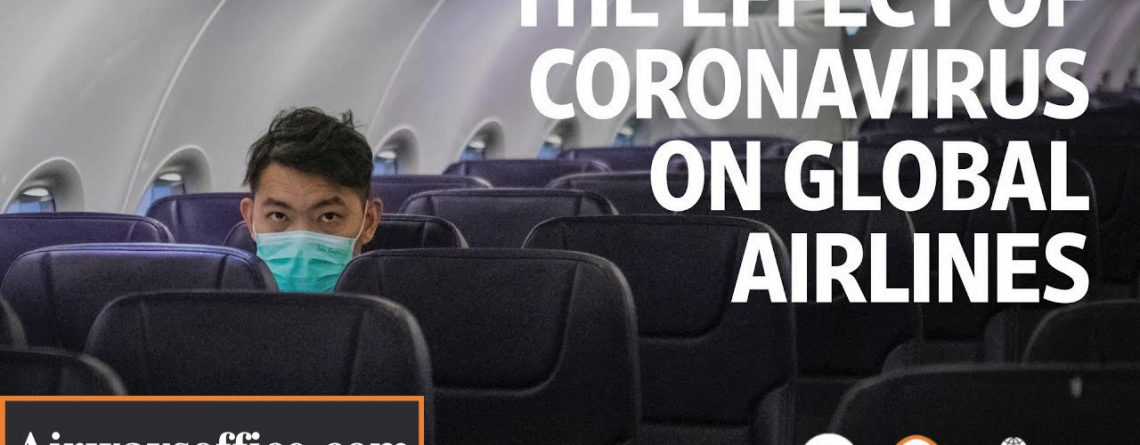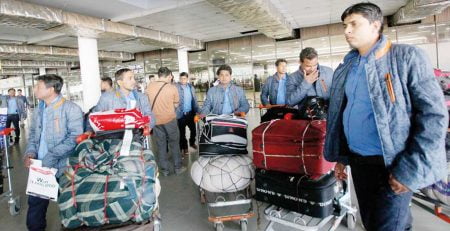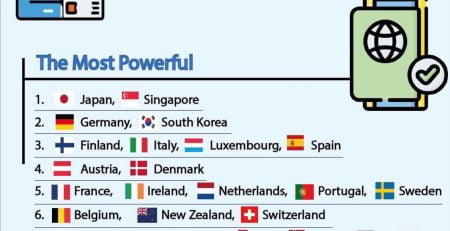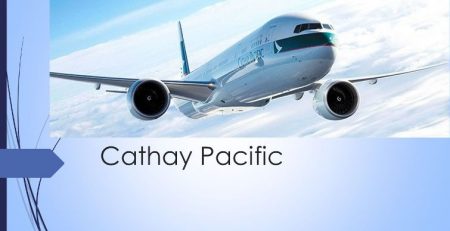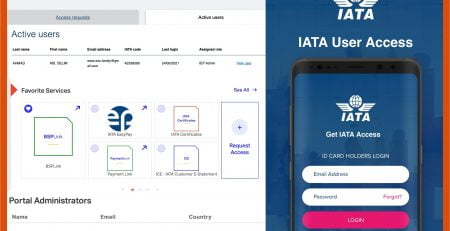Travel Restrictions in the world due to COVID-19(Novel Coronavirus)
A new global tracker mapping the impact of the new coronavirus on movement around the world.
Japan
Visa Policy:
- All travellers have to self-isolate for 14 days after entry. Those who do not have a residence in South Korea will be quarantined at designated locations at their own expense. (As of April 1, 2020)
- All passengers to Korea must undergo fever check at the departure airport. Any passenger who has fever with temperature over 37.5’C will be rejected to board a flight to Korea. (As of March 20, 2020)
- All passengers departing from Europe or the US and entering Korea are subjected to COVID-19 test if they have symptoms. (Until March 31, 2020)
- Visa exemption entry applied to nationals of Japan will be suspended. (As of March 9, 2020)
- The following passengers are not permitted to enter South Korea. (As of February 4, 2020):
- (1) Chinese who have a passport issued by Hubei Province, anyone who has visited Hubei Province in the past 14 days.
- (2) Visa exemption entry to JEJU island will be temporarily suspended.
- (3) Passengers who are not eligible for visa waiver of Korea are not permitted to transit in Korea if travelling from China.
Deny entry or transit to Indonesia for visitors/travellers who have travelled to the following countries, in the last 14 days:
Iran, Italy, Holy See, Spain, France, Germany, Switzerland, United Kingdom All visitors/travellers must complete and submit a Health Alert Card to the Port Health Authority upon arrival at Indonesian airports.
The Government advises all Indonesian citizens to restrict non-essential outbound travels. For Indonesian citizens who have travelled to the countries above, an additional screening shall be carried out by the Port Health Authority upon arrival, If the additional screening shows initial symptoms of COVID-19, a 14-day observation in a government facility will be applied; If no initial symptom is found, a 14-day self-quarantine will be strongly recommended.
From March 8, travellers from Tehran, Qom and Gilan in Iran, Lombardi, Veneto, Emilia Romagna, Marche and Piedmont in Italy, and Daegu and Gyeongsangbuk-do in South Korea will be banned from entering Indonesia,travelers not from the aforementioned cities must provide a clean bill of health from a health authority in their countries upon check-in at the airport, or they will be denied from entering Indonesia.
All arriving travellers will be screened for symptoms. In case of any suspected exposure, the passenger — regardless of national origin or purpose of travel — will be evaluated and sent to specially designated facilities for quarantine. From March 11, all travellers are required to self-quarantine at home for 14 days after entry. Entry to Azerbaijan is temporarily suspended for all citizens of China and Iran. Visa issuance for the citizens of these countries has also been suspended.
The border with Iran, Georgia, Russia and Turkey are closed. Flights to and from China, Iran, France, Germany, Kazakhstan and Ukraine are cancelled.
Issuance of e-visas has been temporarily suspended for all foreign citizens for a period of 45 days. Those who wish to visit can apply for a visa via their local embassy.
Any foreigner wishing to travel to Cambodia must obtain a visa from Cambodian missions abroad, must provide a medical certificate of negative test results of COVID-19, issued by competent health authorities no more than 72 hours prior to the date of travel, must provide proof of insurance policy that shows minimum medical coverage during the intended stay in Cambodia in the amount not less than fifty thousand US dollars.
The requirements for a medical certificate and insurance do not apply to any foreigner holding a diplomatic visa or official visa of Cambodia. Upon entry in Cambodia, any foreigner will be screened and subject to a health risk assessment, mandatory isolation, quarantine or any other measures.
The government will ban foreigners from Italy, Germany, Spain, France and the United States from entering the country for 30 days, effective March 17.
Foreign citizens and stateless persons, who are members of the families of Kyrgyzstanis with documentary evidence of close family ties, or have a permanent residence permit in the Kyrgyz Republic, will be able to enter.
Close all “local” and “customary” border checkpoints across the country. As for international border checkpoints, only those that are fully equipped with the necessary equipment and staff for standardized screening and detecting suspected infected persons will be allowed to open.
Suspend the issuance of all kind of visas on arrival, including E-Visa and tourist visas for all nationals for the next 30 days. For those who already have obtained an entry visa to Laos, they must also attach a health certificate and a historical record of his\her activities over the past 14 days before entering Laos. As for visa exemption countries, the government has decided to temporarily suspend such exemptions until further notice, except those who hold diplomatic and official passports.
Avoid travelling abroad in this period, especially by air and mass transportation.
People travelling from a country with an outbreak must self-quarantine for at least 14 days and self-monitor their symptoms as a duty to wider society. In case of a fever, it is advisable to notify doctors and relevant authorities immediately.
Entry into Lebanese territory is prohibited for travelers. Diplomats, UN peacekeepers, employees of international organizations and goods shipments would still be permitted entry.
Non-Lebanese nationals with a valid annual residence permit, Lebanese citizens and foreign members of their families from France, Syria, Egypt, Iraq, Germany, Spain, Great Britain are allowed to enter on Lebanese territory until March 16. 2020. These people will however have to observe a period of confinement of 14 days at home and contact the Ministry of Public Health if flu-like symptoms appear.
Non-Lebanese nationals with a valid annual residence permit, Lebanese citizens and foreign members of their families not arriving from France, Syria, Egypt, Iraq, Germany, Spain, Great Britain, Italy , Iran, China (Hong Kong, Macao) and South Korea are allowed to enter Lebanese territory until March 18. 2020.
From March 25, all incoming Myanmar nationals from country will be subject to a 14-day facility quarantine on their arrival in Myanmar.
The government has announced following resolutions:
Ban on entry of all non-Omanis to the sultanate’s territories via all land, sea and air ports and checkpoints, except citizens of Gulf Cooperation Council states from March 17. Imposing quarantine on all passengers arriving in the Sultanate via all land, sea and air ports and checkpoints, including Omanis. The country has suspended issuing of tourist visas beginning on March 15.
From March 9, Saudi Arabia temporarily banned citizens and foreigners living in Saudi Arabia from traveling to United Arab Emirates, Kuwait, Bahrain, Lebanon, Syria, South Korea, Egypt, Italy, Iraq, Oman, France, Germany, Turkey and Spain. Saudi Arabia has also stopped flights and ships from these countries.
From March 12, the country has suspended flights to all European Union countries as well as Switzerland, India, Pakistan, Sri Lanka, the Philippines, Sudan, Ethiopia, South Sudan, Eritrea, Kenya, Djibouti, and Somalia, has suspended land travel to and from Jordan.
Arrivals from all the above-mentioned countries and those who have been there in the last 14 days have been temporarily barred from entering the country. From March 13, all travelers entering Saudi Arabia have to self-quarantine for 14 days.
The Government prohibits the entry of foreigners into national territory, except for foreigners born in Timor-Leste, resident citizens and legal representatives of minors of Timorese nationality. The Prime Minister may exceptionally authorise the entry of foreigners, in duly substantiated cases, relating to the defence of the national interest or convenience of service. This prohibition does not apply to oil rig workers located in the Timor Sea.
Foreigners responsible for the transport of goods or release of imported goods must remain in the international zone of seaports, airports or land border posts.
All persons wishing to leave the country will be subject to health control, in particular by measuring body temperature or other means of diagnosis. Except in cases of medical evacuation, those who present symptoms of COVID-19, fever greater than 38º C, cough and/or breathing difficulties will be prevented from traveling and will be taken to a health facility to perform diagnostic tests of COVID-19.
All persons entering the country are required to be quarantined for at least 14 days and if they have symptoms of COVID-19 will have to be subject to diagnostic examination of COVID-19 and in positive cases will be subject to therapeutic isolation.

The Italian Government encourages avoiding any movement across all country.
Only Italian and foreign tourists still on holiday who need to come back to their places of residence are allowed to move. Airports and railways stations are open just to allow these people to come back to their own places.
Avoid movement of people to and from all regions with the exception of well-founded business reasons, circumstances of need, movement due to health reasons.
From March 28, for Italian nationals returning to Italy and foreign national resident in Italy:
Before boarding, the carrier’s staff is required to check the self-certification setting out the following detailed information: the reasons for travelling to Italy (health needs, work requirements, reasons of absolute necessity), the place of self-isolation for 14 days, own or otherwise private means of transportation used to get to the place of self-isolation and a mobile/land phone number.
All persons entering Italy are required to self-isolate,
The above rules do not apply to the following persons: cross-border workers, health services personnel, passenger/freight transport crews.
According to the government order of March 20, it was decided not to extend the temporary restriction on entry into the Russian Federation to citizens of The Commonwealth of Independent States (CIS) arriving in Russia through air border crossing points and departing to their citizenship states through air border crossing points and other border crossing points when traveling to their citizenship states by other means of transport.
Starting from Tuesday, March 17, 2020, the rules of border crossing have been:
1. Only citizens of Estonia and holders of Estonian residency permit or right of residence, among them the so-called grey passport holders can enter Estonia, as well as those foreign citizens whose family member lives in Estonia.
2. Foreigners are allowed to transit Estonia on the way to their home country if they do not show symptoms of COVID-19. The detailed information on this so called “”humanitarian corridor”” is provided by border control officials.
3. At the border crossing points, i.e. ports, airports and checkpoints at all Russian and Latvian land borders, the travel documents and medical symptoms will be checked.
4. Everyone entering the country must remain in self-isolation for 14 days.
5. International cargo (especially transport of food and medical supplies) can enter the country, as well as persons providing vital services, like fuel providers.
From March 13, the Greek government has suspended all flights and ferries to and from Italy suspended all flights to and from Spain, closed its borders with Albania and Northern Macedonia; Greek citizens and permanent residence in Greece Citizens can still enter; cruise ships are prohibited from arriving at Greek ports.
From March 23 to April 15, flights to and from the United Kingdom and all air, land and sea travel with Turkey will be suspended, and entry into Greece from Turkey is prohibited, except for Greek citizens, Greek permanent residents and cargo.
On March 11, the government has ordered a state of emergency in connection with protective measures against the new coronavirus. The border controls will be reintroduced on Hungary’s Schengen borders with Slovenia and Austria, and all trains, buses and flights from these countries will be subjected to restored general border control measures.
The government has ordered a ban on travelers from Italy, China, South Korea and Iran, except for Hungarian citizens arriving from those locations who will have to stay in isolation at home for two weeks after arrival.
International passenger transport through airports, ports, by bus and rail transport, other than passenger transport by State aircraft and military transport, shall be cancelled from 17 March 2020.
The movement of persons and vehicles through airport, port, railway and road border crossing points at the European Union’s external border, as well as at border crossing points intended for local border traffic, other than freight transport, shall be prohibited from 17 March 2020.
The nationals of the Republic of Latvia and foreigners whose permanent residence is the Republic of Latvia, the foreign diplomats working in Latvia, as well as persons arriving in Latvia for humanitarian reasons and to pursue national interests, shall be authorized to return to the Republic of Latvia through the border crossing points.
Short-term and long-term visas for entry to Latvia shall not be issued by the diplomatic and consular missions of Latvia abroad, as long as the emergency situation exists.
The country has temporarily closed the border crossings between Moldova and Romania and Ukraine, and suspended all international land travel to Moldova and domestic rail transport; Flights from Italy, Spain, France, Austria, Belgium, Czech Republic, Cyprus, Germany, Ireland, United Kingdom, Poland, Portugal, Romania has been suspended; Airlines are banned from carrying foreign citizens (except for foreign citizens who have a residence or residence permit in Moldova) to Moldova.
Transit passengers: People free of illness and symptoms may fly to their final destination to be quarantined in their own home.
From March 18, for 30 days, all international flights will be suspended except for EU countries, countries where Portuguese is the official language, and countries with a large Portuguese diaspora (Canada, the United States, South Africa, Venezuela).
New Zealand citizens who live in Australia as Australian residents are also exempt, as are New Zealanders transiting to New Zealand. Exemptions for Pacific Islanders transiting to their home countries will continue to apply.
Australian citizens and permanent residents and those exempt from our entry restrictions will continue to be subject to a strict 14 days self-isolation.
The New Zealand Government has further strengthened travel restrictions, closing border to almost all travelers from 23:59 on Thursday 19 March 2020.
Exceptions can be made on a case-by-case basis by Immigration New Zealand for: humanitarian reasons, health and other essential workers, citizens of Samoa and Tonga for essential travel to New Zealand, and the holder of a visitor visa who is the partner of dependent of a temporary work or student visa holder and who normally lives in New Zealand and is currently in New Zealand.
No other foreign traveler can enter New Zealand. Returning residents and citizens must isolate themselves for 14 days upon arrival.
These restrictions will be reviewed in 14 days.
New Zealand citizens, permanent residents, residents with valid travel conditions and their immediate family (partner or spouse, legal guardian and dependent children under the age of 24) can still come to New Zealand. Immediate family members cannot travel by themselves. They must travel with the New Zealand citizen or resident family member on the same flight to New Zealand.
Australian citizens and permanent residents who normally live in New Zealand can still come to New Zealand.
All travelers to New Zealand must isolate themselves for 14 days upon arrival.
Exemption may be made to this prohibition for Palauan citizens and residents, provided that such persons submit to a comprehensive health screening and agree to a 14-day self-quarantine upon arrival in Palau.
Any person, including a crew member, a Palauan citizen, or a Palau resident, arriving into Palau at any point of entry is required to complete a health declaration form.
All resident workers of Palau are advised to carry their worker’s permit and immigration entry permit while traveling.
From February 1 to March 31, flights from mainland China (including Hong Kong, Macau) to Palau are suspended.
Bar foreign nationals from all countries except the United States from entering Canada. The measure would not apply in designated exceptional circumstances, including to air crews, travelers arriving in Canada in transit to a third country, Canadian permanent residents, diplomats, or immediate family members of Canadian citizens.
Redirect international passenger flight arrivals to four airports: Toronto Pearson International Airport, Vancouver International Airport, Montréal-Trudeau International Airport, and Calgary International Airport. At this time, this measure will not affect domestic flights or flights from the United States, sun destinations such as Mexico and the Caribbean, or St. Pierre-et-Miquelon.
Airlines will prevent all travelers who present COVID-19 symptoms, regardless of their citizenship, from boarding international flights to Canada.
All travelers to Canada self-isolate for 14 days upon entry, with exceptions for workers who are essential to the movement of goods and people.
Persons traveling to/from these destinations within the last 14 days are asked not to travel to St. Kitts and Nevis; persons who do travel to St. Kitts and Nevis from these destinations will be subject to screening at the ports of entry and may be monitored by the public health team or quarantined at home or at a designated facility based on risk assessment.
The Federation of St. Kitts and Nevis reserves the right to deny entry to any non-nationals who have visited the countries listed above within the incubation period of 14 days; nationals and/or residents who have visited those countries within the 14-day incubation period will be required to go through the established screening process.
From March 30 to April 15, 2020, the Government is requesting that persons should limit being outside of their homes unless they are part of the essential staff of essential businesses or to conduct essential activity.
From March 17, all flights from China, South Korean, Iran, Europe and the United States will be suspended for at least 30 days. All foreigners having, during the last 14 days, stayed or transited through United States, European Union, United Kingdom, Ireland, China, Iran, Japan, South Korea, Schengen countries will not be allowed entry, except for residents.
From March 20 until April 13, the government impose a nation-wide home quarantine.
From March 3, foreign nationals from China, South Korea, Iran, Italy, Nigeria, Egypt, Algeria and other countries or regions with confirmed cases are prohibited from entering Angola. Angola will suspend all international flights from March 20, close the land ports with neighboring countries, and prohibit passenger ships from docking at Angola ports. This will be effective for 15 days, and may be extended if necessary.
Those who have entered before March 20 have to self-isolation for at least 14 days. The presidential decree also puts forward more stringent and specific measures and requirements for various public activities, public places, and personal hygiene and epidemic prevention.
All passengers travelling to Sierra Leone will be screened.All travelers who have been in countries affected by the coronavirus in the last 14 days will be quarantined for 14 days. The President declared a State of Public Emergency with effect from March 24 for a period of twelve months, Citizens are strongly encouraged to postpone all overseas travel especially to locations with reported cases of the Corona virus. The Ministry of Health has issued a comprehensive advisory for the administration of quarantine for citizens, legal residents, and visitors who arrive in Sierra Leone.

